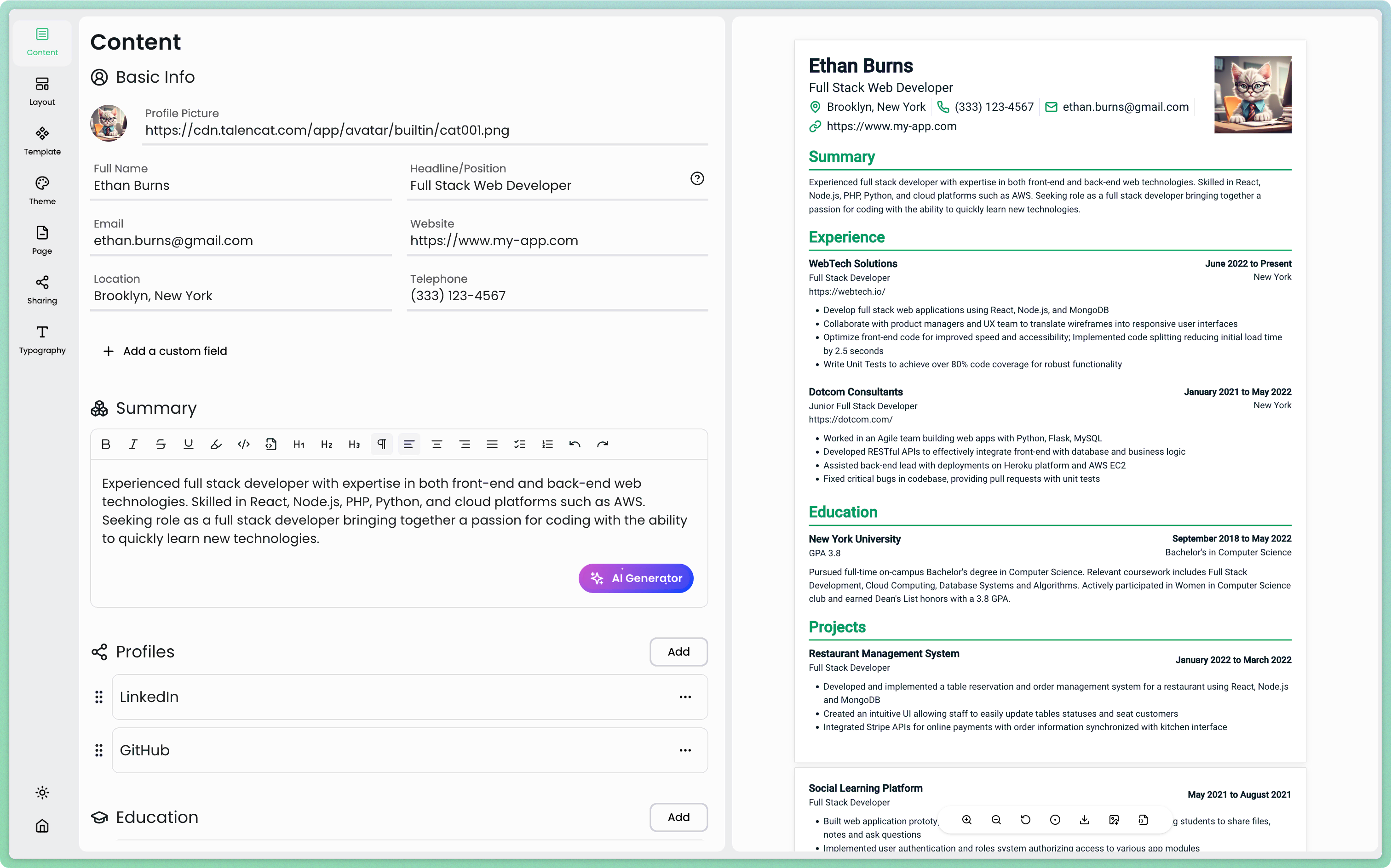In today's rapidly evolving cybersecurity landscape, Governance, Risk, and Compliance (GRC) analysts play a crucial role in safeguarding organizations against threats and ensuring regulatory adherence. As the demand for skilled GRC professionals continues to grow, it's essential for job seekers to be well-prepared for the interview process. This comprehensive guide will walk you through the key aspects of GRC analyst roles, common interview questions, and effective strategies to help you succeed in your career journey.
Understanding GRC Analyst Roles and Responsibilities
Before diving into the interview preparation, it's crucial to have a clear understanding of what GRC entails in the context of cybersecurity and the primary responsibilities of a GRC analyst.
What is GRC in Cybersecurity?
GRC in cybersecurity refers to the integrated approach of managing an organization's governance, risk management, and compliance with relevant laws, regulations, and industry standards. It provides a framework for aligning IT with business objectives while effectively managing risk and meeting compliance requirements.
Key Responsibilities of a GRC Analyst
GRC analysts are responsible for implementing and maintaining an organization's GRC program. Their primary duties include:
- Developing and implementing governance policies and procedures
- Conducting risk assessments and creating mitigation strategies
- Ensuring compliance with relevant regulations and standards
- Monitoring and reporting on the effectiveness of GRC initiatives
- Collaborating with various departments to integrate GRC practices
- Staying updated on industry trends and emerging threats
Preparing for GRC Analyst Interviews
Thorough preparation is key to succeeding in GRC analyst interviews. This section will cover common interview formats and the importance of researching the company and industry.
Common Interview Formats
GRC analyst interviews may involve various formats, including:
- Phone screenings
- One-on-one interviews
- Panel interviews
- Technical assessments
- Case studies or scenario-based discussions
Be prepared for a combination of these formats, as many organizations use a multi-stage interview process to evaluate candidates comprehensively.
Researching the Company and Industry
Before your interview, invest time in researching the company and the industry it operates in. This knowledge will help you tailor your responses and demonstrate your genuine interest in the role. Focus on:
- The company's mission, values, and culture
- Recent news or developments in the organization
- The industry's regulatory landscape
- Emerging trends and challenges in GRC
Top GRC Analyst Interview Questions
Now, let's explore some of the most common GRC analyst interview questions, along with expert answers to help you prepare effectively.
Governance-related Questions
Frameworks and Standards
Sample Question: "What governance frameworks are you familiar with, and how have you implemented them in your previous roles?"
Expert Answer: "I'm well-versed in several governance frameworks, including COBIT, ITIL, and ISO 27001. In my previous role, I led the implementation of COBIT 5 to align our IT processes with business goals. This involved mapping our existing processes to COBIT's domains, identifying gaps, and developing action plans to address them. The implementation resulted in improved decision-making, more efficient resource allocation, and better overall IT governance."
Policy Development and Implementation
Sample Question: "Describe your approach to developing and implementing new security policies."
Expert Answer: "My approach to policy development and implementation involves a collaborative process. First, I assess the organization's needs and regulatory requirements. Then, I draft policies in consultation with relevant stakeholders, ensuring they align with business objectives and industry best practices. Once approved, I create an implementation plan that includes training, communication, and monitoring components. I also establish a review cycle to keep policies up-to-date and effective."
Risk Management Questions
Risk Assessment Methodologies
Sample Question: "What risk assessment methodologies have you used, and how do you choose the appropriate one for a given situation?"
Expert Answer: "I'm experienced with various risk assessment methodologies, including OCTAVE, FAIR, and NIST SP 800-30. The choice of methodology depends on factors such as the organization's size, industry, and specific risk landscape. For instance, in a large financial institution, I used FAIR (Factor Analysis of Information Risk) due to its quantitative approach, which aligned well with the organization's need for precise risk quantification. In contrast, for a smaller healthcare provider, I opted for NIST SP 800-30, as it provided a more straightforward, qualitative approach that suited their resources and compliance requirements."
Risk Mitigation Strategies
Sample Question: "Can you explain your process for developing and implementing risk mitigation strategies?"
Expert Answer: "My process for developing risk mitigation strategies starts with a thorough risk assessment to identify and prioritize risks. I then work with stakeholders to determine the most appropriate treatment for each risk: avoidance, reduction, transfer, or acceptance. For risks that require mitigation, I develop specific strategies that consider cost-effectiveness, feasibility, and alignment with business objectives. Implementation involves clear communication of the strategies, assigning responsibilities, and establishing timelines. Finally, I set up monitoring mechanisms to track the effectiveness of the mitigation efforts and make adjustments as needed."
Compliance-related Questions
Regulatory Knowledge
Sample Question: "What experience do you have with regulatory compliance, and how do you stay updated on changing regulations?"
Expert Answer: "I have extensive experience with various regulations, including GDPR, HIPAA, and PCI DSS. In my previous role, I led compliance efforts for a multinational company, ensuring adherence to these regulations across different jurisdictions. To stay updated, I regularly attend industry conferences, participate in webinars, and am a member of professional associations like ISACA. I also subscribe to regulatory updates from relevant authorities and legal firms specializing in compliance."
Compliance Monitoring and Reporting
Sample Question: "How would you design a compliance monitoring and reporting system for a large organization?"
Expert Answer: "Designing an effective compliance monitoring and reporting system involves several key steps. First, I would identify all applicable regulations and map them to the organization's processes and systems. Then, I'd implement automated tools to continuously monitor compliance status, such as log analysis and policy enforcement software. I would establish key performance indicators (KPIs) for compliance and create dashboards for real-time visibility. Regular audits and assessments would be scheduled to validate the effectiveness of controls. For reporting, I would design a tiered system with detailed reports for operational teams and executive summaries for senior management and the board. This approach ensures comprehensive coverage while providing actionable insights at all levels of the organization."
Technical Knowledge Questions
Cybersecurity Concepts
Sample Question: "Explain the concept of defense in depth and how it applies to GRC."
Expert Answer: "Defense in depth is a cybersecurity strategy that employs multiple layers of security controls to protect an organization's assets. In the context of GRC, this concept is crucial as it aligns with the principles of risk management and compliance. By implementing various security measures such as firewalls, intrusion detection systems, access controls, and encryption, we create a comprehensive security posture that addresses different types of threats and compliance requirements. This layered approach not only enhances security but also demonstrates due diligence in meeting regulatory obligations and managing risks effectively."
GRC Tools and Technologies
Sample Question: "What GRC tools have you worked with, and how did they improve the GRC processes in your organization?"
Expert Answer: "I have experience with several GRC tools, including RSA Archer and IBM OpenPages. In my previous role, we implemented RSA Archer to streamline our GRC processes. The tool significantly improved our risk assessment capabilities by providing a centralized platform for risk data collection and analysis. It also enhanced our compliance management by automating control assessments and providing real-time visibility into compliance status. The reporting features allowed us to generate comprehensive reports for different stakeholders, improving communication and decision-making. Overall, the implementation resulted in more efficient processes, better data accuracy, and improved risk visibility across the organization."

Scenario-based Questions
Scenario-based questions are crucial in assessing a candidate's ability to apply their knowledge to real-world situations. Here are some examples:
Risk Scenarios
Sample Question: "Your organization is planning to move critical data to a cloud service provider. What risk considerations would you address, and how would you mitigate them?"
Expert Answer: "In this scenario, I would first conduct a comprehensive risk assessment focusing on data security, privacy, and compliance implications. Key considerations would include data encryption, access controls, vendor security practices, and regulatory compliance requirements. To mitigate risks, I would recommend implementing strong encryption for data in transit and at rest, establishing clear data ownership and access policies, and ensuring the cloud provider meets relevant compliance standards. I would also advise on conducting regular security audits, implementing a robust incident response plan, and maintaining some level of data redundancy on-premises. Additionally, I would ensure that proper contractual agreements are in place, including data processing agreements and clearly defined responsibilities for data protection."
Compliance Scenarios
Sample Question: "Your company has just acquired a smaller firm in a different industry. How would you approach integrating their compliance program with yours?"
Expert Answer: "Integrating compliance programs after an acquisition requires a systematic approach. I would start by conducting a thorough assessment of both compliance programs, identifying strengths, weaknesses, and any gaps. Next, I would map out the regulatory landscape for both industries to ensure comprehensive coverage. It's crucial to involve key stakeholders from both organizations in this process. I would then develop an integration plan that leverages the best practices from both programs while addressing any identified gaps. This plan would include harmonizing policies and procedures, aligning reporting structures, and integrating compliance technologies where possible. Training programs would be developed to bring all employees up to speed on the new integrated compliance framework. Throughout the process, I would maintain open communication channels to address concerns and ensure buy-in from all levels of the organization. Finally, I would establish metrics to monitor the effectiveness of the integrated program and make adjustments as needed."
Soft Skills and Personal Experience Questions
Communication Skills
Sample Question: "How do you communicate complex GRC concepts to non-technical stakeholders?"
Expert Answer: "Effective communication of GRC concepts to non-technical stakeholders is crucial for gaining support and ensuring understanding. My approach involves several strategies. First, I avoid technical jargon and use plain language to explain concepts. I often use analogies or real-world examples to make abstract ideas more relatable. Visual aids like diagrams or infographics can be very helpful in illustrating complex processes or relationships. I also tailor my communication style to the audience, focusing on the aspects most relevant to their roles or concerns. For instance, when speaking with executives, I emphasize business impact and strategic implications. Additionally, I encourage questions and feedback to ensure comprehension and address any concerns promptly."
Problem-solving Abilities
Sample Question: "Describe a challenging GRC problem you faced and how you resolved it."
Expert Answer: "In my previous role, we faced a significant challenge when implementing a new enterprise-wide risk management system. The main issue was resistance from various departments due to concerns about increased workload and disruption to existing processes. To address this, I first conducted a thorough analysis to understand the root causes of the resistance. I then developed a multi-faceted approach to resolve the issue. This included organizing targeted workshops to demonstrate the benefits of the new system, creating a phased implementation plan to minimize disruption, and establishing a cross-functional team to address specific concerns from each department. I also worked closely with the IT team to customize the system interface, making it more user-friendly and aligned with existing workflows. By actively involving stakeholders in the solution and addressing their concerns, we were able to successfully implement the system with broad acceptance across the organization."
Teamwork and Collaboration
Sample Question: "How do you collaborate with other departments to ensure GRC objectives are met?"
Expert Answer: "Collaboration is key to successful GRC implementation. My approach involves establishing strong relationships with other departments through regular communication and involvement in cross-functional projects. I organize periodic meetings with key stakeholders from various departments to discuss GRC objectives, challenges, and opportunities for improvement. I also work to integrate GRC considerations into existing business processes rather than treating them as separate activities. For example, when working with the IT department, I ensure that security and compliance requirements are built into the system development lifecycle from the start. With the legal team, I collaborate on interpreting regulations and developing policies. I believe in creating a culture of shared responsibility for GRC, where each department understands its role in achieving overall objectives. This collaborative approach not only improves compliance and risk management but also fosters a more resilient and risk-aware organization."
TalenCat: Master GRC Analyst Interview Questions
Preparing for a GRC (Governance, Risk, and Compliance) Analyst interview can be challenging, but with the right tools, you can significantly boost your confidence. TalenCat CV Maker, an online interview questions generator, offers a powerful "Interview Assistant" feature that can help you anticipate and prepare for potential questions based on your resume content.
Here's how to use TalenCat CV Maker to prepare for your GRC Analyst interview:
Step 1: Log in to TalenCat CV Maker and create or upload your GRC Analyst resume.
Step 2: Navigate to the AI Assistant section by clicking "AI Assistant" -> "Interview Assistant" in the left-side menu.

Step 3: Click "Analyze Now" to generate potential interview questions tailored to your GRC Analyst resume.

By leveraging TalenCat CV Maker's Interview Assistant, you can:
- Anticipate questions specific to your GRC experience and skills
- Prepare thoughtful responses to common GRC Analyst interview questions
- Identify areas in your resume that might require additional explanation or emphasis during the interview
Remember, the key to a successful GRC Analyst interview lies in thorough preparation. TalenCat CV Maker's AI-powered tools can give you the edge you need to stand out from other candidates.
With TalenCat CV Maker, you're not just creating a resume; you're building a comprehensive strategy for your GRC Analyst job search. The platform's intuitive interface and AI-driven insights make it an invaluable tool for anyone looking to excel in their next GRC interview.

Don't leave your interview preparation to chance. Let TalenCat CV Maker guide you through the process and help you present your best self to potential employers in the competitive field of Governance, Risk, and Compliance.
Answering GRC Analyst Interview Questions
STAR Method for Behavioral Questions
The STAR method (Situation, Task, Action, Result) is an excellent framework for answering behavioral questions. When using this method:
- Describe the Situation or context
- Explain the Task or challenge you faced
- Detail the Actions you took
- Highlight the Results or outcomes of your actions
This structured approach helps you provide comprehensive and relevant answers.
Demonstrating Technical Expertise
When answering technical questions:
- Be specific about the technologies, frameworks, or methodologies you've used
- Provide concrete examples of how you've applied your knowledge
- Explain your reasoning behind technical decisions
- Be prepared to discuss both successes and lessons learned from challenges
Showcasing Analytical Skills
GRC roles require strong analytical abilities. To showcase these skills:
- Describe your approach to problem-solving
- Highlight instances where your analysis led to significant improvements
- Discuss how you balance qualitative and quantitative data in decision-making
- Demonstrate your ability to see the big picture while attending to details
Common Mistakes to Avoid in GRC Analyst Interviews
To increase your chances of success, avoid these common pitfalls:
- Lack of preparation: Failing to research the company or understand the role thoroughly
- Overemphasis on technical skills: Neglecting to highlight soft skills like communication and teamwork
- Vague or generic answers: Not providing specific examples or measurable results
- Ignoring the business context: Failing to connect GRC activities to business objectives
- Lack of enthusiasm: Not demonstrating genuine interest in the role or organization
Tips for Success in GRC Analyst Interviews
Staying Updated with Industry Trends
Demonstrate your commitment to professional growth by:
- Discussing recent industry developments
- Mentioning relevant certifications or ongoing education
- Sharing insights from industry conferences or publications
Emphasizing Relevant Experience
Tailor your responses to highlight experiences most relevant to the role by:
- Aligning your examples with the job description
- Focusing on achievements that demonstrate your ability to add value
- Explaining how your past experiences have prepared you for this specific role
Asking Thoughtful Questions to the Interviewer
Show your engagement and interest by asking insightful questions such as:
- "What are the biggest GRC challenges facing the organization currently?"
- "How does the GRC team collaborate with other departments?"
- "What opportunities for professional development are available in this role?"
Conclusion: Preparing for Your GRC Analyst Career
Securing a position as a GRC analyst requires a combination of technical knowledge, analytical skills, and effective communication abilities. By thoroughly preparing for your interview, understanding common questions, and following the strategies outlined in this guide, you'll be well-equipped to showcase your expertise and land your ideal GRC role. Remember, the key to success lies not just in knowing the right answers, but in demonstrating how you can apply your skills to add value to the organization. As you embark on your GRC career, continue to stay updated with industry trends, expand your knowledge base, and cultivate the soft skills that will make you an invaluable asset to any organization's GRC team.




